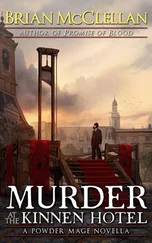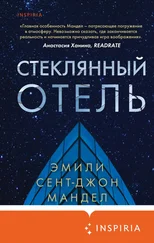“Very much so.”
“Did you see her again?”
“Kaspersky? No.”
Yes, but it isn’t an evening he likes to think about. He and Suzanne were eating dinner at Le Veau d’Or, a restaurant they both loved. Well, he was eating dinner, at any rate. Suzanne was sipping chicken broth. They’d just been to see the oncologist and it was as though they’d entered a tunnel that ended in darkness. They were being transported at high speed toward night. Alkaitis was trying to keep up his end of the conversation but Suzanne was in a different tunnel, an even darker one, she was answering in monosyllables and he could already see how they would be divided from now on, how Suzanne would be carried more and more rapidly away from him. He’d thought the evening couldn’t possibly get any worse, but any given evening can always get worse. A few tables away he heard breaking glass, and when he turned to look, he saw Ella Kaspersky. She was dining alone. A busboy had dropped her wineglass and it had shattered on a bread plate.
“You know her?” Suzanne asked, seeing something in his expression.
“You’re not going to believe this, but that’s Ella Kaspersky.”
(A difference between life with Suzanne and life with Vincent, one of many: he told Suzanne everything.)
“I didn’t think she’d be elegant.” Kaspersky didn’t glance in their direction. She was engaged in dabbing white wine from her lapel. “All this time, I was picturing her as some kind of disheveled crank.”
“Are you going to eat any more?” He wanted his wife to eat something, to keep her strength up, and also very much wanted her to stop staring at Kaspersky.
“No, let’s get the check.”
He got the check and attended to the details while his wife studied Kaspersky, who’d waved off the busboy’s apologies and had returned to reading some kind of document, an inch of paper held together with a binder clip. He didn’t like the way Suzanne was looking at her.
“Let’s just leave,” he said softly, when the check was taken care of, but Kaspersky was seated at the restaurant’s narrowest point, and they had to walk quite close to her table to get to the door. As they neared the table, Suzanne’s face was set in a terrifying smile. Kaspersky finally looked up when they were almost upon her. She had an excellent poker face, except that her eyes narrowed slightly when she recognized him.
“Good evening, Ella,” Alkaitis said. The SEC had closed the investigation earlier that week. There was no need to be ungenerous in victory.
She leaned back in her chair, considering him, and sipped her wine. She didn’t speak for so long that he thought she wasn’t going to say anything, and was just gathering himself to leave when she said, “You’re beneath my contempt.”
Alkaitis was paralyzed. He couldn’t imagine what to say.
“Oh, Ella,” Suzanne said. A small shard from the broken wineglass had been overlooked at the base of the bread basket. Suzanne plucked it between two fingers and dropped it delicately into Kaspersky’s water glass. They all watched it drift to the bottom.
Suzanne leaned in close and spoke quietly. “Why don’t you swallow broken glass?”
There was a moment where no one spoke.
“I’m sure you must hear this all the time,” Ella Kaspersky said, “but you two are perfect for each other.”
Alkaitis took his wife’s arm and steered her rapidly out of the restaurant, out to the cold street, where the car was waiting. He bundled her in and sat beside her. “Home, please,” he said to the driver. He glanced over and saw that Suzanne was weeping silently, her hands over her face. He pulled her close and held her tightly, her tears falling on his coat, and they stayed like that, not speaking, all the way back to Connecticut.
—
In a different life, in the library at FCI Medium 1, the visiting professor takes an uncharacteristic break from F. Scott Fitzgerald. “I want to talk about allegory today,” he says. “Any of you know the story of the swan in the frozen pond?”
“Yeah, I think I know that story,” Jeffries says. He was a police officer until he tried to arrange a hit on his wife. “The one about the swan who doesn’t fly away in time, right?”
Alkaitis finds himself thinking about the swan story later on, standing in line for his potatoes and mystery meat. The story was a favorite of his mother’s, repeated every so often throughout childhood and adolescence. There’s a flock of swans on a lake in the deepening autumn. As the nights grow colder, they all fly away. Except one, for reasons Alkaitis can’t remember: a lone swan who doesn’t perceive the approaching danger or loves the lake too much to leave even though it’s clearly time to go or is afflicted by hubris—the swan’s motivations were hazy and, Alkaitis suspects, changeable, depending on what message his mother was trying to impart at any given moment—and then winter sets in and the swan is frozen in ice, because it didn’t get out of the water in time.
—
“I thought I’d be able to get out,” he tells Freeman when she comes to see him again. “I was embarrassed. I didn’t want to let everyone down. They were just so greedy, these people, the returns they expected…”
“You feel the investors pushed you to commit fraud,” she says blandly.
“Well, I didn’t say that, exactly. I take full responsibility for my crimes.”
“But you seem to think the investors were partly to blame.”
“They expected a certain level of returns. I felt compelled to deliver. It was a nightmare, actually.”
“For you, you mean?”
“Yes, of course. Imagine the stress,” he says, “the constant pressure, always knowing that eventually it would all come crashing down but trying to keep it going anyway. I actually wish I’d been caught sooner. I wish they’d caught me back in 1999, that first SEC investigation.”
“And you maintain that no one else knew about the scheme.” Freeman’s voice was carefully neutral. “The account statements, the deception, the wire transfers, that was all you.”
“It was all me,” he says. “I never told a living soul.”
—
On a different day, Yvette Bertolli circles the recreation yard, walking a little behind and to the right of an elderly mafioso whose name used to inspire terror on the Lower East Side but who now shuffles awkwardly in a slow-motion attempt at jogging. Elsewhere, Olivia and Faisal are speaking with a man Alkaitis doesn’t recognize, a man who is also not a prisoner, presumably also not alive, a middle-aged man in a beautiful gray wool suit.
There were four Ponzi-related suicides that Alkaitis is aware of, four men who lost more than they could bear. Faisal was one of them; is this man another? There was an Australian businessman, if Alkaitis remembers correctly, also a Belgian. Are more ghosts even now approaching FCI Florence Medium 1? He stares at Olivia and is overcome by rage. What right does she have to haunt him? What right do any of them have to haunt him? It isn’t his fault that Faisal chose to do what he did. If he’s to be honest with himself, he supposes Yvette Bertolli’s heart attack was probably Ponzi related, but she should have seen the scheme for what it was and she could’ve gotten out whenever she wanted, just like everyone else, and whatever happened to Olivia can’t possibly be blamed on him, he’s been in prison for years now and she’s only been dead for a month. When Alkaitis thinks about how much money he provided, all the checks he sent out over the years, he feels a hollow rage.
“I’m not saying what I did was right but by any rational analysis I did some good in the world,” he writes to Julie Freeman. “By which I mean I made a lot of money over a period of decades for a lot of people, a lot of charities, many sovereign wealth funds and pension funds, etc., and I know that might seem self-justifying but the numbers are the numbers and if you look at investments vs. returns, most of those people/entities took out far more than they put in and made far more money than if they’d just invested in the stock market and therefore I would suggest that it is inaccurate to refer to them as ‘victims.’”
Читать дальше












